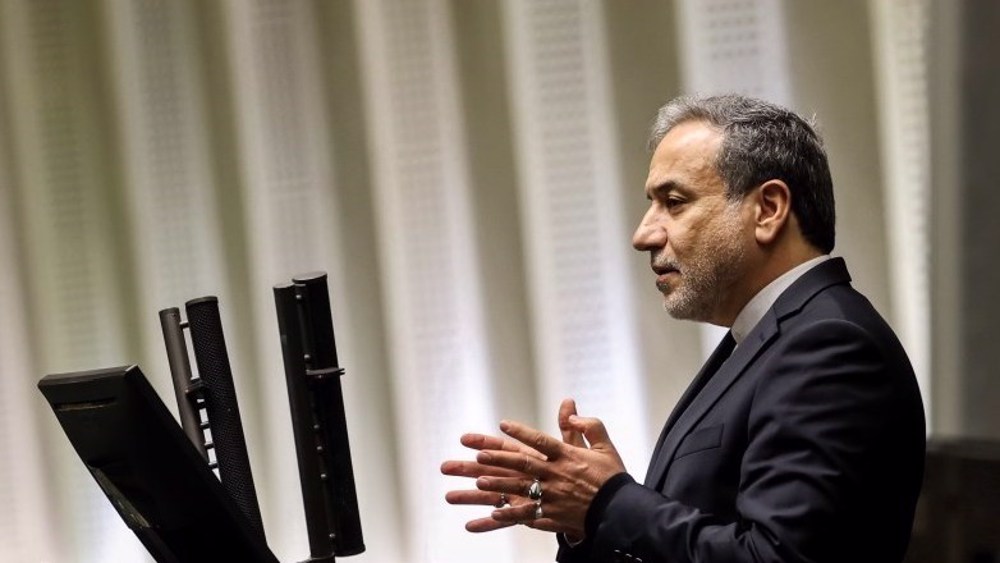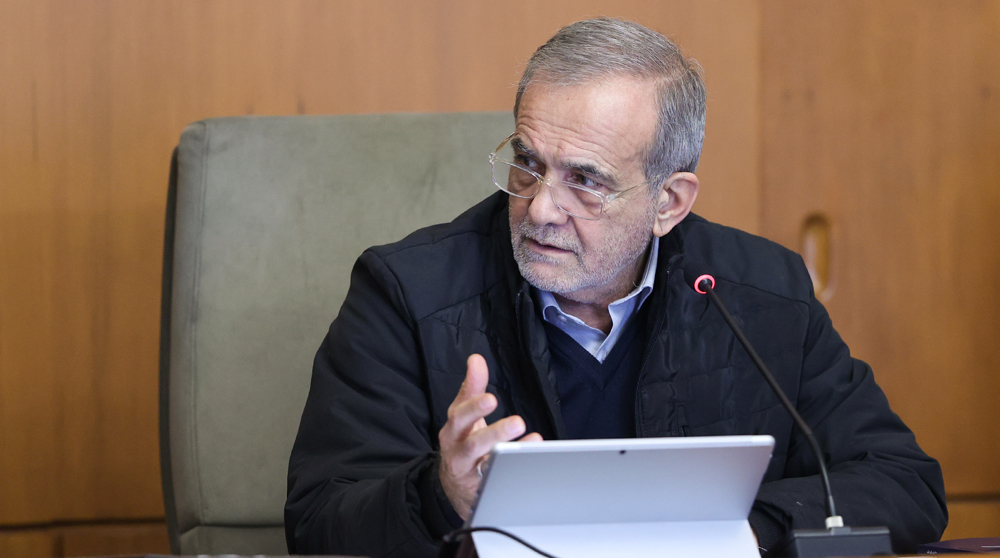IRGC chief: Iran pursuing Israel’s collapse; Tehran’s power ‘impervious’ to Syria situation
The chief commander of the Islamic Revolution Guards Corps (IRGC) says Iran is vigorously pursuing the downfall of the occupying Zionist regime, stressing that the Iranian Armed Forces have the enemies’ strategic and vital interests in West Asia in the crosshairs.
Major General Hossein Salami made the remarks on Tuesday as he attended a closed-door briefing session at the Iranian Parliament (Majlis) on Tuesday over the situation in Syria, after militants, led by Hay’at Tahrir al-Sham (HTS), seized the capital Damascus and declared the end of President Bashar al-Assad's 24-year rule.
Briefing reporters after the session, the spokesperson for the Iranian Parliament's National Security and Foreign Policy Committee, Ebrahim Rezaei, said the IRGC chief provided an in-depth analysis of the status quo in West Asia, stating, “Our sphere of power and influence has not shrunk, and our military might have not suffered a setback at all.”
Salami also stressed that attempts aimed at the downfall of the Zionist regime remain high on the Islamic Republic’s agenda, praising the influential role of the late top Iranian anti-terror commander, Lieutenant General Qassem Soleimani, in the elimination of the Takfiri Daesh terrorist group, Rezaei added.
The IRGC chief also underscored that forces within the Axis of Resistance have gained self-sufficiency in developing various types of munitions and military hardware, the Iranian legislator pointed out.
Moreover, Ahmad Naderi, a member of the Presiding Board of Iran’s Parliament, said the closed-door briefing session mainly touched upon Iran’s military strategies in the region, Israeli offensives and how to confront them, as well as the security, intelligence and military status of West Asia.
The session also dealt with the collapse of Assad's government and possible regional developments in the future. It was underscored that Iranian military advisors were present in Syria until the last moments of the former government, but none is currently deployed to the Arab nation now, Naderi said.
Militants waged a surprise two-pronged attack on Syria’s Aleppo and the countryside around Idlib on November 27.
Soon afterward, they seized control of several major Syrian cities, including Hama, Homs, Dara’a, and Suwayda, before entering the capital Damascus on December 8.
Armed groups, led by HTS militants, announced that they had fully captured Damascus, and confirmed reports of the fall of Assad’s government.
US, Israel eye Africa for displacing Palestinians from Gaza: Report
Families of Iranian victims of terror condemn Italy's support for MKO
Security Council agrees to condemn massacre of Alawites in Syria
Greenland PM summons party leaders after Trump's annexation comments
China, Russia urge end to ‘unlawful sanctions’ on Iran
Columbia University expels, suspends pro-Palestine students
Ex-head of Israeli military intelligence welcomes 'chaos' in Syria
Iran: New sanctions show US 'hypocrisy, infringement of law'




















 This makes it easy to access the Press TV website
This makes it easy to access the Press TV website